Since the rise of property technology (PropTech), the world has grown increasingly aware of home security risks and residential crime – and yet, only 40 percent of US residents have a security system in place. Then you zoom out and look at residential communities which consists of gated- communities, gated and guarded communities, and multi-dwelling units. When it comes to securing large scale properties cost is often a factor that prevents owners, developers, and managers from protecting their property. Hiring a security guard to man a community gate can be very costly even before taking into account, gates, cameras, wiring, and barrier arms.
The positive news is that owners and property managers now have plenty of options when it comes to affordable security solutions, including virtual gate guard systems that can be deployed for a fraction of the cost of a human security force. So, what is the best option for gated communities?
In this article, we’ll compare
- On-site gate guard costs and overview
- Virtual guard services and remote gate entry systems
- Self service access and visitor management solution
The State of Home Security
Proptech – technology relating to the property industry – has been on the rise in recent years, with investors pumping billions of dollars into the sector. This is in response to increased consumer demand for proptech solutions that make properties more secure, efficient and sustainable.
One area where proptech is having a big impact is perimeter security. It’s a topic often neglected in proptech conversations, but the progress being made is astounding; companies are now offering AI-powered vehicle and license plate recognition security cameras, facial recognition entry systems and much more.
At the moment, there are exciting barriers being lowered in terms of property and security technology. Let’s take a closer look at three of the most popular solutions on the market: 24/7 manned gate guards, virtual guard services, and self-service visitor kiosks.
On-site Gate Guard Cost and Overview
When it comes to gated communities, it’s important to understand that security decisions are often made by developers – and one of the most appealing security options for developers is 24/7 manned gate guards.

The logic is simple. Gate the community, build a beautiful entrance guardhouse, engineer a visitor lane and a resident lane and hire a security company to check visitors and vendors in and out. Potential residents are much more likely to feel safe about renting or purchasing in that community. Besides, the developers are not faced with the ongoing costs of hiring 24/7 manpower; those costs are transferred to the owners and HOA Board.
This is how the system typically works:
- A community entrance is designed with two entry lanes, one for visitors and one for residents
- A small gatehouse is situated at the visitor lane, and a human security guard is stationed there at all times
- The guard checks the identification of every visitor and uses a log book or software to process visitors and vendors coming into the property
- They may also perform vehicle searches if deemed necessary
- When residents are in distress or incidents occur, security gate attendans may also be tasked with recording and addressing incidents as well as general resident assistance
The main advantages of manned gate guards are that they’re highly visible and offer a personal touch. If someone is loitering near the entrance of the property, the security guard will likely notice and take action accordingly. Additionally, having a human presence at all times can be reassuring for residents.
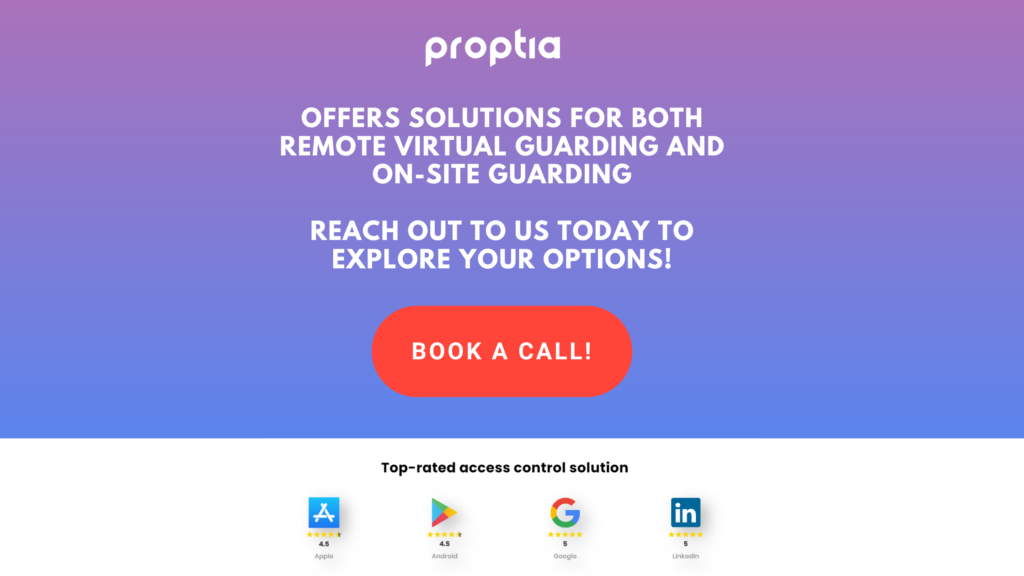
On the downside, manned gate guards are expensive; you’re paying for someone to sit in a booth for hours on end, and those costs quickly add up. In addition, security guards are only human – they can get tired, make mistakes, and even fall asleep on the job.
Aside from that, security is threatened when the guard is assisting a resident or visitor; if someone were to try and sneak in while the guard is distracted, they could easily go unnoticed.
How much does an HOA gate guard cost?
While costs will vary depending on the size of the property and the number of guards required, community homeowner associations can expect to pay upwards of $175,000 per year for a 24/7 manned gate security. That’s three 8 hour shifts, one person per shift at $20 per hour.
There are a few factors that affect the price, including:
- The number of guards required (one per entrance is typical)
- The hourly rate of each guard
- How many hours each guard works per day/week
- Benefits costs
- Taxes
- Insurance
Considering that there are plenty of other security options available for residential communities in the digital age, gate guard costs are simply too high for many associations to justify.
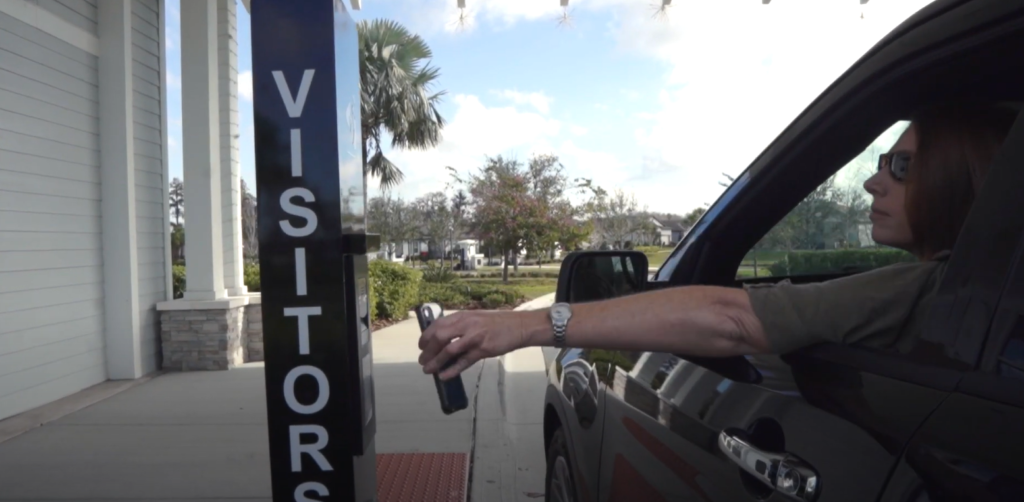
Virtual Guard Services
For communities not interested in paying for the high costs of manned gate security, virtual security guards present a happy medium. Virtual guard services involves the use of live-streaming cameras and two-way audio to provide around-the-clock security at a fraction of the cost of traditional guards.
With virtual guard security, an off-site security team monitors your property in real-time, processing visitors, and providing an extra set of eyes and ears on your community 24/7. If they see something suspicious, they can immediately dispatch the appropriate authorities to your property.

Additionally, if a visitor needs assistance, they can use the two-way audio to speak with the security team and get the help they need. It’s the ideal solution for communities that want the peace of mind of 24/7 security without the high price tag – although, the system is still a significant investment.
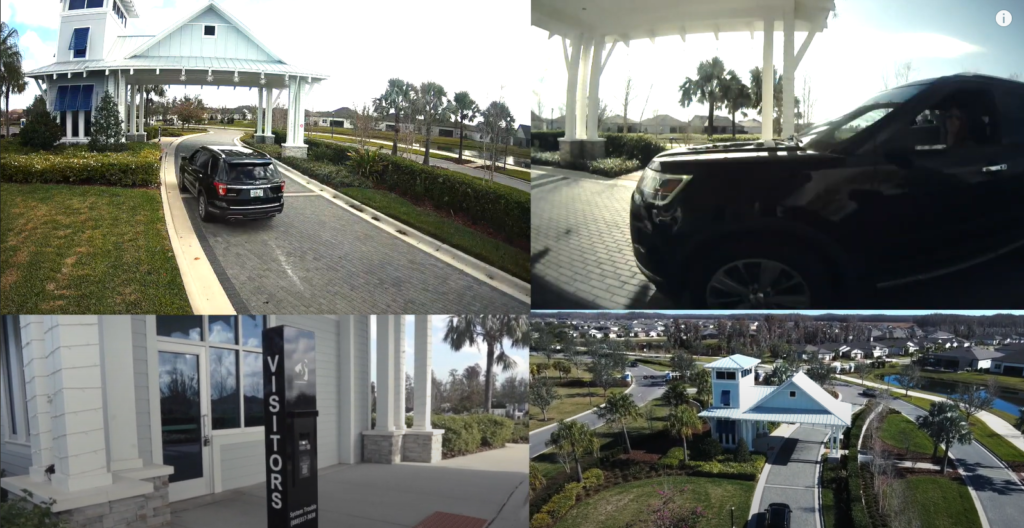
How Much To Virtual Guards Services Cost?
The cost of virtual security guards is much lower than manned gate security. While the cost from one agency to another varies greatly, communities can expect to save around half of what they would spend on manned security when they switch to virtual security guards.
Communities often hesitate to invest in a system like this, purely from the standpoint that on-site security guards feel like a more tangible form of security. However, with the technological advances of today, virtual security guards can provide an even higher level of security than traditional guards.
Note that a system like this will still require an investment; when considering the price of hardware like cameras, visitor processing kiosks, power supplies, however the cost-savings on an annual bases tends to be a no-brainer.
Self-Service Kiosks: Affordable and Effective
The final option to be discussed here is the most affordable: self-service visitor kiosks. Self-service kiosks are what visitors will use to gain entry and they are typically used in conjunction with an access control system to allow residents to easily and quickly enter and exit the community.
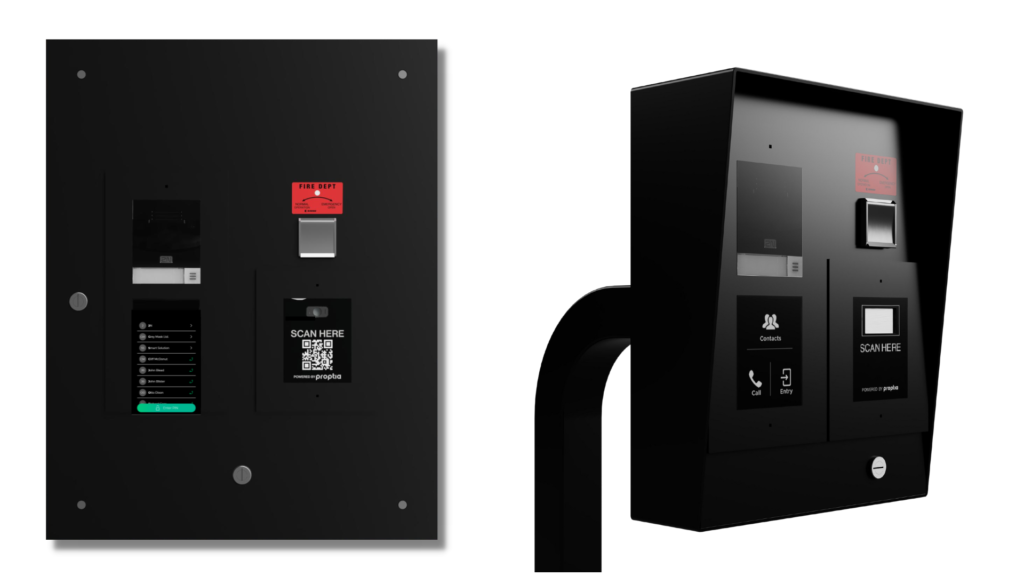
These systems use either a RFID Transponders or mobile credential. The resident is given a transponder that is affixed to their vehicle, which opens the gate for them. While this system doesn’t have the tangible human presence of a 24/7 guard, its abilities far exceed those of a manned or virtual guard security system.
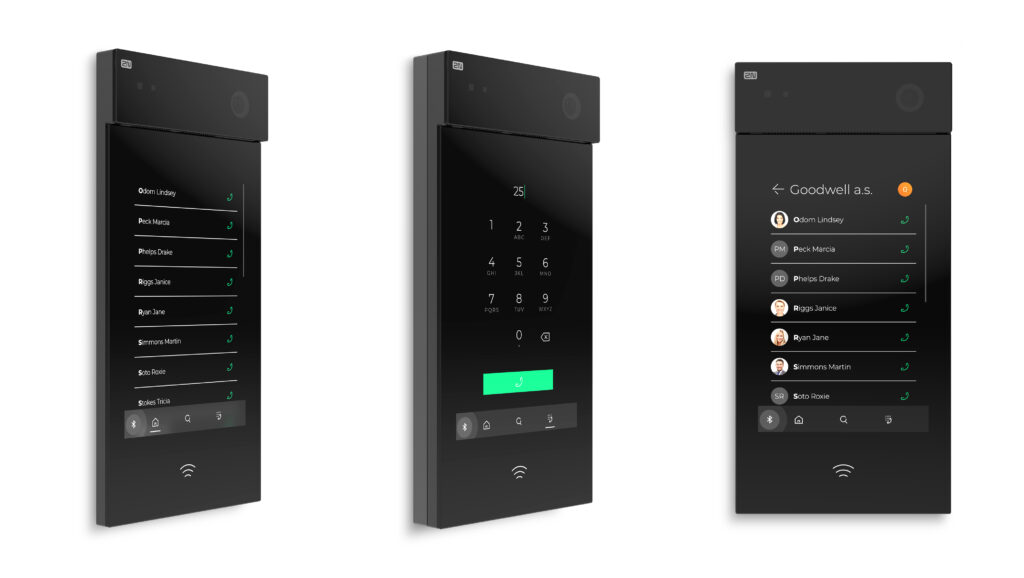
Now when it comes to visitors entering the community, that is where a Visitor Processing Kiosks comes into play. Not only is a kiosk much more affordable than either manned or virtual security guards, but it’s also much more flexible in terms of security settings. For instance, our kiosk system at Proptia can:
- Send digital ePasses with specific day and time perimeters
- Notify residents when certain guests arrive on the premises
- Integrate with a mobile app for total security transparency
- Create custom reports of comings and goings
- Use automatic license plate recognition to streamline the visitor check-in process
- Use license plate recognition for vehicle identification e.g. make, model, color, type, with images.
In other words, self-service kiosks give property managers and community members complete control over who has access to the community – and when, give them detailed reporting, all without the exepense of on-site security.
What Does It Cost?
Kiosks are by far the cheapest method of security for gated communities – but that doesn’t mean these systems compromise on quality or effectiveness. In fact, self-service kiosks tend to cost in the four-digit range whilst still delivering top-of-the-line security features.
With our Proptia kiosk system in place, the benefits are irrefutable:
- Security is easily accessible to all residents, with important information made readily available via our cloud-based system.
- The money saved by cutting out manpower costs can be reinvested in other areas of the community, such as landscaping or clubhouse upgrades.
- Kiosks are less intrusive than manned security posts, and can even be used to improve the aesthetic appeal of a gated community.
- Our team of security experts is always on hand to offer live support, should any issues arise.
- Accurate reports keep a helpful record of all comings and goings – a valuable resource for both property managers and law enforcement.
In short, self-service kiosks are the smartest, most cost-effective solution for gated communities looking to improve their security without breaking the bank. Thanks to our team of experts at Proptia, you can rest assured that your community is in safe hands.
The Verdict: Gate Guard Costs vs Virtual Guard Alternatives
In the past, manned gates were the best security choice for gated communities and other closed residences. But with the advent of new technology, virtual gate guard systems are becoming a more popular and cost-effective option – and there is no longer a sound reason to spend hundreds of thousands of dollars per year on a gate guard.
Cloud-based kiosks are the ideal alternative to traditional security measures. While virtual surveillance is a great way to transition into the world of proptech, going a step further to implement automated kiosks can yield even greater savings and security for your community.
Here’s a rundown of the cost comparison once more:
- Manned gates cost around $175,000 + per year.
- Virtual surveillance costs can come in as low as half that of on-site security
- Kiosks cost only a fraction of the price, usually falling in the four-digit range.
It is fortunate that cost savings in proptech do not come at the expense of security.
Ready to explore the world of automated gate security? Contact us at Proptia for more information or to schedule a demo. We are passionate about keeping your community and company secure.
GET IN TOUCH

